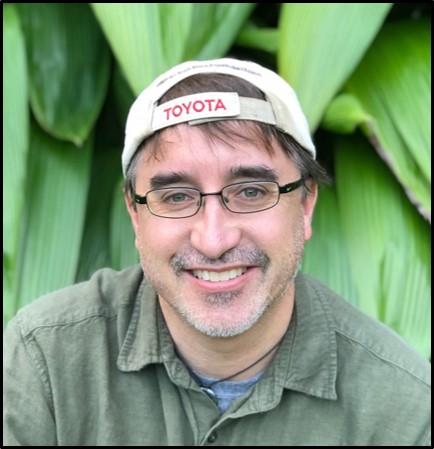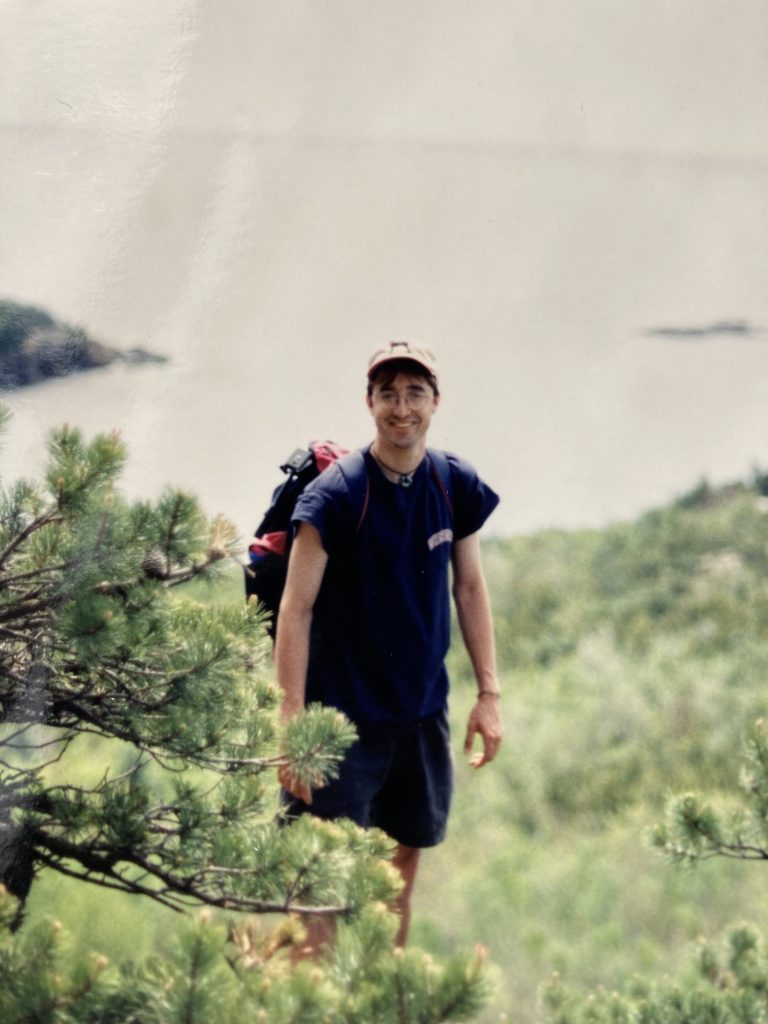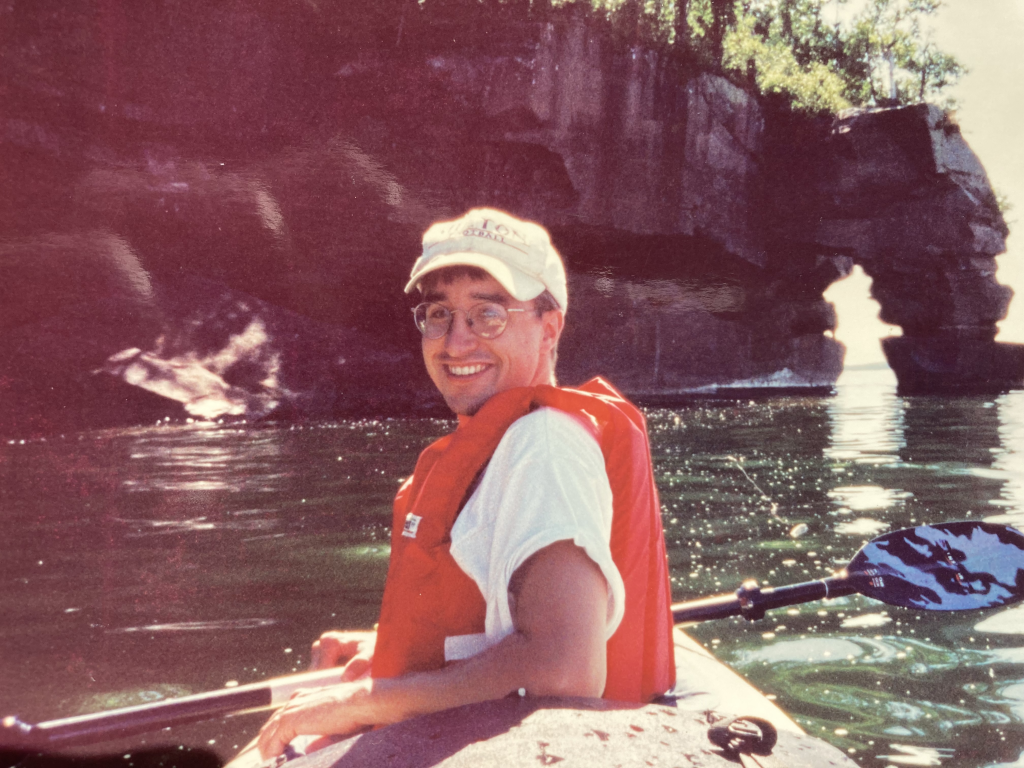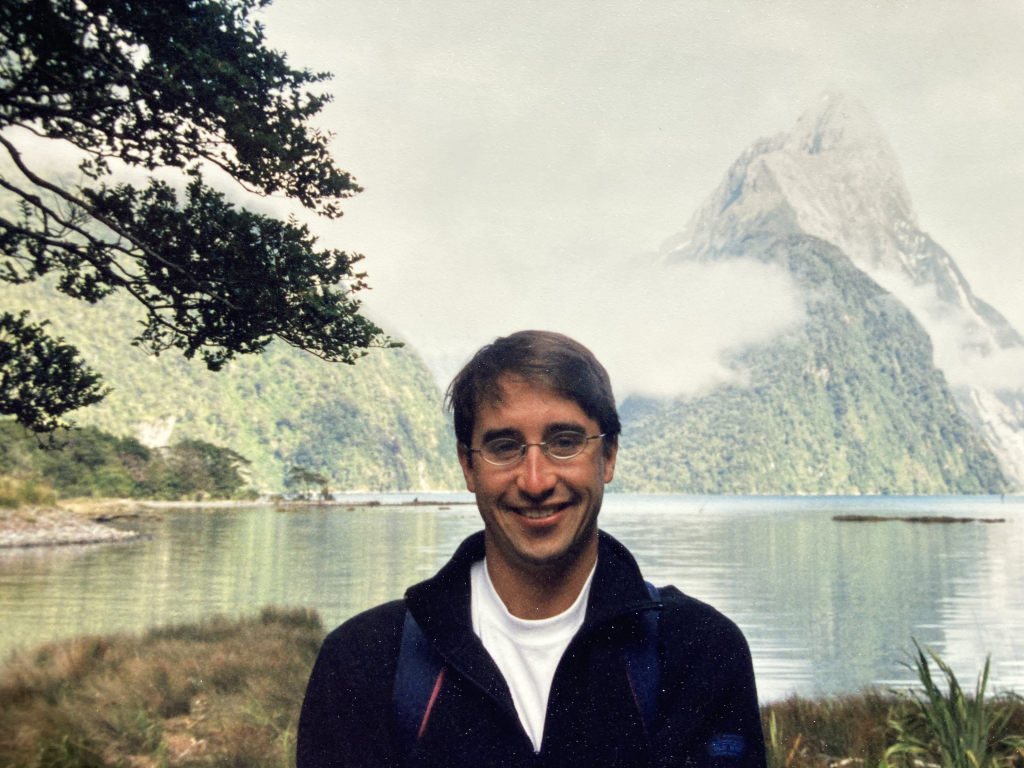



Discovering His Passion
Dripps found his love for geology in the backyard of his childhood home in Philadelphia. Collecting rocks and minerals for a display in sixth grade, Dripps’s interest in geology was not spurned by his unenthusiastic classmates.
During frequent vacations to his aunt’s house in upstate New York, he would spend his days at the shale pit on her property. “I’d be at the shale pit, for days, the whole time [my family and I] were there and I’d bring home big containers of rocks,” Dripps said.
While Dripps didn’t have the opportunity to take geology in high school, upon entering Amherst College Dripps knew “besides [his] first-year writing course [he] had to take, [he was] taking Intro to Geology [his] first semester.”
The positive experience in the course and the department led to a greater interest in pursuing and later declared as a Geology major. “It was kind of like the match made in heaven, like right from the beginning.”
Throughout his four years at Amherst, he took all the available Geology courses and then later toured the Five College Consortium taking classes at Smith, Mt. Holyoke, UMass, and Hampshire.
Geology to Hydrogeology
Upon graduating from Amherst, Dripps knew he wanted to be a working geologist. But he “wanted to find a career track where [he] felt like there was stability.” In order to do this, he “honed in on water.” Dripps realized that water’s status as a critical resource meant that he would always be employed, since “there’s always going to be a demand.”
Although this was true, Dripps Amherst education did not offer him much background in hydrogeology. Feeling like he lacked the necessary knowledge to pursue a career in hydrogeology, he attended Dartmouth College where he earned a master’s degree in Earth Sciences. “[I] had a great time at Dartmouth. I took a lot of hydrogeology classes and math classes and some engineering classes,” Dripps said.
Entering the workforce, he yearned for the ability to work in the field and practically apply his newfound knowledge in hydrogeology. Using his Dartmouth connections, Dripps found refuge at the Earth Satellite Corporation where he worked for several years as an environmental consultant. “The company was an international company that did oil, gas, and water exploration. Being in my 20s, I was like I get to travel the world. And I get to do all these really cool global projects, and it’s gonna be very applied. I mean, we’re getting hired by people to find water or find oil or find gas. I got really excited about that. I took all this kind of very academic knowledge and now was applying it in a real practical way.”
Becoming Professor Dripps
After traveling the world for several years, Dripps realized that his “heart [had] always been in teaching.” While he established a field of expertise in water resources, he still lacked a doctoral degree. With his sights set on becoming a college professor, Dripps researched the best institutions to learn about hydrogeology and was introduced to the University of Wisconsin.
Begging and pleading his way into the program, Dripps found great success at the university. “I knew that the end goal for me was not to go back into consulting, but it’s like, ‘Great, I’m going to come out of my Ph.D., and then I’m going to go get a teaching position somewhere and go into higher education.'”
Joining the workforce again, but this time as an Assistant Professor in Earth and Geographic Sciences at UMass – Boston, Dripps found himself amongst a non-traditional but driven student base of older students, first-generation college students, and international students. “I taught a ton of classes, I had like six or seven different hydrology-related classes.”
After working at UMass – Boston for three years, he was introduced to an open teaching position at a small liberal arts college, Furman University. Taking a leap of faith, Dripps, his wife, and his first child moved to South Carolina. “My heart was always in liberal arts, I felt like it was a better fit for me. I love research, but I would not think of myself as a researcher. I always saw research as an extension of my teaching and so I knew pretty early on, I didn’t want to be at a research institution. But I was more interested in getting students interested in research as opposed to doing my own.”
Starting off as a faculty member, Dripps worked his way up the academia ladder until he was awarded a position as a professor and was later the Earth Environmental Science Department chair for several years. “I was a full-time faculty member, I was teaching four or five classes a year and I was in that role for 12 to 13 years. Ten years along the way, I started to get really interested in sustainability. Furman had a good reputation for sustainability, we had a president that was very proactive about it. So I got myself on these committees that were about sustainability, sustainable action plan, and the climate action plan. It’s not hydrology necessarily, but I still love teaching hydrology. So I continued to kind of do that. I think the future of environmental science is really about sustainability science and systems thinking and a liberal arts institution like Furman or Amherst is right for this, this is what we’re all about. Getting students to see things from multiple perspectives.”
His extensive work in various committees and passion for sustainability made him a prime candidate for the university’s Center for Sustainability. Furman offered Dripps the director position and he had the ability to maintain his role as a professor. Taking on the dual role, Dripps liked to say he “had two full-time-half-time jobs.”
As the director, Dripps elevated the department to a more prominent position on campus and he was able to form the Shi Institute for Sustainable Communities. “When I got [to the Center for Sustainability] six years ago, we had two of us and we went to 11 in five or six years, which was really fun and exciting. In a nutshell, my job was to infuse sustainability across the curriculum, co-curriculum, and our facilities operations. It was an intentional decision by the administration and others to help with our brand.”
The Return to Amherst
The decision to move to Amherst and work at his alma mater occurred when a position unexpectedly opened up. “[The college] had moved [the position] from under facilities and it was originally very focused on the operational side [of sustainability]. Then they moved it up under the provost and [the position] was going to have more of an academic kind of component. It’s exactly what I was doing at Furman. The opportunity to come back to your alma mater and launch a program that was more or less new and kind of in its infancy. [I have] a lot of experience with the successes and failures of trying to do much the same to other institutions. I was like, ‘This is what I want to do. This is great. I can go back to Amherst and help be the charge.’ I felt pretty confident because I built similar programs at Furman and what worked and what didn’t work. I think that gave me good confidence that I could come here and do the same.”
Now, as the Director of Sustainability, Dripps works alongside all individuals on campus to promote sustainability. “Probably not something a lot of employees can say, I’ve been working with the custodial team and the landscaping team, in the trenches with my hat on backward sorting through donations and garbage. I like to get my hands dirty.”
Dripps’s passion for sustainability shines through in the many educational opportunities, careers, and initiatives he has assumed over the years. “I walked away from being a full-time tenured faculty member to come back to the college as a staff member because I believe in the cause. I love the work.”
To learn more about sustainability efforts on campus and the growing sector of sustainability careers offered, visit the Office of Sustainability.
